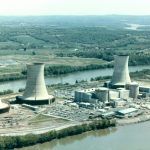2012 Nuclear Security Summit: What it was and wasn’t
By Duyeon Kim | March 30, 2012
This week, world leaders descended on Seoul, South Korea, for the second global Nuclear Security Summit — a project that started with President Obama’s call to secure all vulnerable nuclear material in four years (by the end of 2013). Unfortunately, most of these world leaders did not storm the gates of the summit ready to fight for that deadline. Many walked into a meeting already overshadowed by various domestic agendas and geopolitics, putting a damper on the real purpose of the gathering.
That’s too bad. The 2012 Nuclear Security Summit in Seoul could have been a watershed moment for nuclear security. After all, the Obama administration’s first global Nuclear Security Summit in Washington two years ago that conceptualized nuclear security led to some unprecedented outcomes: Participating nations fulfilled over 90 percent of their voluntary summit commitments — resulting in the reduction of vast amounts of highly enriched uranium, numerous reactor conversions, and a series of anti-smuggling initiatives. The Seoul conclave was primed to build on these successes by reenergizing the international community on security issues, collecting more commitments to reduce nuclear materials, implementing nuclear security procedures and innovating global governance. Instead, it seemed everyone was buzzing over just about everything other than nuclear security. And what few accomplishments were achieved ended up more toothless than most analysts had hoped.
Undoubtedly, world leaders will take advantage of a major international assembly to discuss other key issues on the sidelines. But it was all too clear in Seoul that many were downright preoccupied — 2012 is simply too crowded with domestic issues and election races for most leaders or media to concentrate on the task at hand. This was perhaps best epitomized by President Obama’s open-mic gaffe, when he was overheard telling President Medvedev, “This is my last election. … After my election, I have more flexibility.” And of course, it doesn’t help that nuclear security is a tough sell to a global public more focused on the economy and other kitchen-table issues than on the global stockpile of nuclear materials; that is, nuclear security is a wonky concept that doesn’t ring a bell for most people. Timing, naturally, is everything.
But, for some, it was difficult to focus entirely on the summit. From the start, North Korea was the talk of the town among everyone from journalists, diplomats, heads of state, and passersby. Though the summit was a useful and necessary opportunity to send Pyongyang a strong message, the fact is North Korea and the Nuclear Security Summit are two completely distinct topics. The Nuclear Security Summit targets terrorists and vulnerable nuclear materials while North Korea is a state that may provide nuclear parts to non-state actors but is a diplomatic and political chasm that goes far beyond the activities in Yongbyon.
Russia’s Foreign Ministry also disrupted the rhythm of the summit when, before the summit, a statement on its website suggested that President Medvedev had no intention of announcing any new commitments toward minimizing its highly enriched uranium use — news that surely had a dispiriting effect on those with good-faith and earnest intentions for the reduction and security of fissile materials. Meanwhile, the US’ failure prior to the summit to ratify two key nuclear security conventions (the amended Convention on the Physical Protection of Nuclear Material and the International Convention for the Suppression of Acts of Nuclear Terrorism) or to sign an agreement with South Africa to remove about 130 kilograms of nuclear material also diminished enthusiasm for the summit.
The format of the Seoul communiqué, intended to compile all things nuclear to ensure summit-level attention, fell short of its objective and was also a problem: Rather than communicating goal-oriented commitments, it tackled only the consensus agreements, which amounted to nothing more than baseline goals. Because of its consensus nature, weaker language was used compared to the 2010 communiqué — for example, the “we will” in 2010 became “we encourage” in 2012. It was a broad consensus statement that largely reaffirmed commitments made in Washington two years ago, but did not set a concrete future course of action.
Still, behind the geopolitical shadows, a few noteworthy steps were taken this year.
Nuclear safety and security. The biggest eye-catcher of the summit’s accomplishments is the nuclear safety-security interface, which was tackled head-on for the first time in the summit process. By recognizing the commonalities of nuclear safety and security measures — two distinct measures — world leaders advanced the idea that the interface should be considered in all stages, from design to emergency response in a synergistic manner so that strengthening one area does not compromise the other. Summit participants also aimed to seek the International Atomic Energy Agency’s (IAEA) assistance in further strengthening the interface by, as a first step, organizing meetings on this matter. It’s an extremely significant first step, but the key is implementing and sustaining measures that strengthen both nuclear safety and security beyond 2014. In other words, implementing common security measures across the planet is an objective that must be observed whether the summit process goes forward or not; it must remain a goal as long as countries continue use nuclear power.
Nuclear materials. There’s enough nuclear material in the world to make 100,000 additional nuclear bombs. The summit set a target date — the end of 2013 — to announce the specific voluntary actions that countries will implement in order to minimize the use of highly enriched uranium in their civilian sectors. That’s a worthy goal; however, it is merely an encouragement rather than a unanimous commitment. Not to mention, some states may find it difficult to meet this deadline due to technical difficulties such as the time it takes to convert existing or newly-ordered reactors to use low-enriched uranium instead of highly-enriched uranium. It is also the first official acknowledgement that completely securing all vulnerable nuclear materials by December 2013, Obama’s four-year goalpost, is not within reach.
Radioactive sources. Thousands of sites worldwide house radioactive materials. So it’s significant that world leaders have not only raised the importance of radiological security since the first summit in 2010, but they’ve set forth a more detailed vision for the safety and security of radioactive materials. Among others, they’ve realized the need to establish national registers of high-activity radioactive sources and committed to work closely with the IAEA to cooperate on advanced technologies, and share best practices and management of radioactive sources. It’s not just nuclear materials that are game-changers: Radioactive materials can be used for terrorist means to make dirty bombs. And, because radioactive materials are widely used for benign purposes — industrial, medical, research, agricultural — their security is just as important to prevent and recover lost, stolen or orphaned sources.
Gift baskets. A new contribution this year is the presentation of “gift baskets,” or joint pledges, from likeminded countries to strengthen nuclear security. For example, Belgium, France, South Korea, and the United States announced a joint project to develop high-density low-enriched uranium fuel to replace highly enriched uranium fuels in high-performance research reactors. If the technology is effective, it could have a profound impact on minimizing highly enriched uranium usage globally.
The challenge for the Nuclear Security Summit process going forward is to sustain nuclear security initiatives while keeping states accountable to their summit commitments. After the distractions and at times listless energy of the Seoul summit, it is crucial that world leaders reestablish the sense of urgency, existentiality, and awareness of the terrorism threat that the planet faces. Summit fatigue among heads of state could threaten global nuclear security; there are already questions as to whether the summit process needs to continue regularly or be absorbed by existing frameworks, like the IAEA. Global nuclear security also needs to move beyond the voluntary, patchwork nature of the current framework toward the creation of a coherent global architecture and governance, starting with a minimum universal guideline for the security of nuclear materials and facilities. Without structure, the summit and nuclear security initiatives could be rendered impotent, and leaders will have even less incentive to pay attention to the goal.
International negotiations and diplomacy is indeed challenging when over 50 different national interests are involved. There was — and will always be — push back from states on more ambitious commitments. But the Nuclear Security Summit needs to chart a deeper and wider course of action. The Seoul Summit showed several countries with smaller amounts of nuclear material agreeing to eliminate their stockpiles. But the bulk of the work exists in places with large quantities, with the exception of Ukraine, which voluntarily cleaned out its highly enriched uranium by removing its last 128 kilograms — this should be the model for all nations, rather than just an example.
Moving forward, the 2014 summit in the Netherlands must be drastically different and must not be a meeting that spends more time reviewing past accomplishments; it should not only address new or evolving security concerns that may arise over the next two years, but also set future goals. The three chairs — Washington, Seoul, and Amsterdam — need to ensure this and hold states accountable. The Nuclear Security Summit may have begun as President Obama’s project, but Seoul 2012 has proven that nuclear security is a global responsibility.
Nuclear terrorism is indeed a low-probability scenario, but its consequences are unimaginably devastating. Far more work needs to be done to prevent terrorists and non-state actors from acquiring nuclear materials and weapons or from sabotaging nuclear facilities. In the meantime, the clock is ticking.
Together, we make the world safer.
The Bulletin elevates expert voices above the noise. But as an independent nonprofit organization, our operations depend on the support of readers like you. Help us continue to deliver quality journalism that holds leaders accountable. Your support of our work at any level is important. In return, we promise our coverage will be understandable, influential, vigilant, solution-oriented, and fair-minded. Together we can make a difference.
Topics: Nuclear Weapons, Opinion















